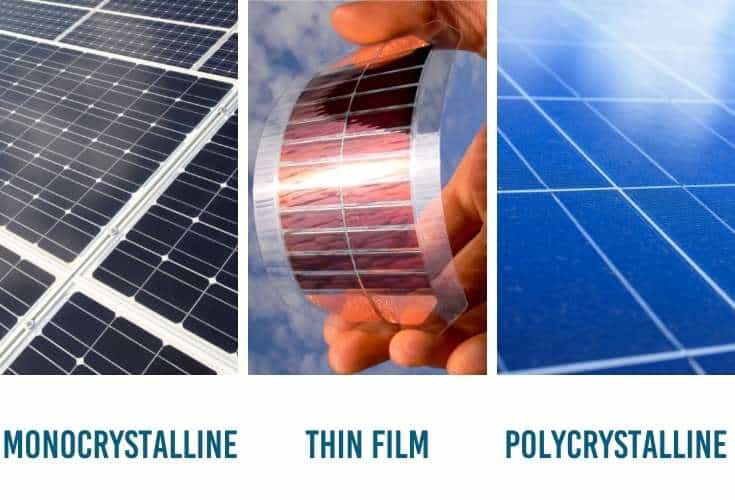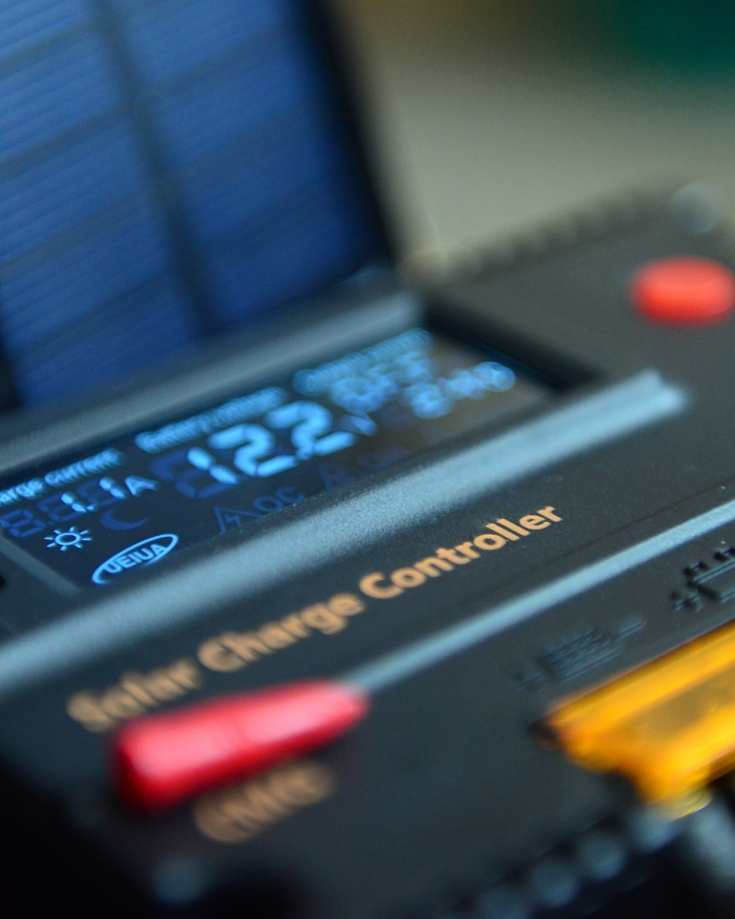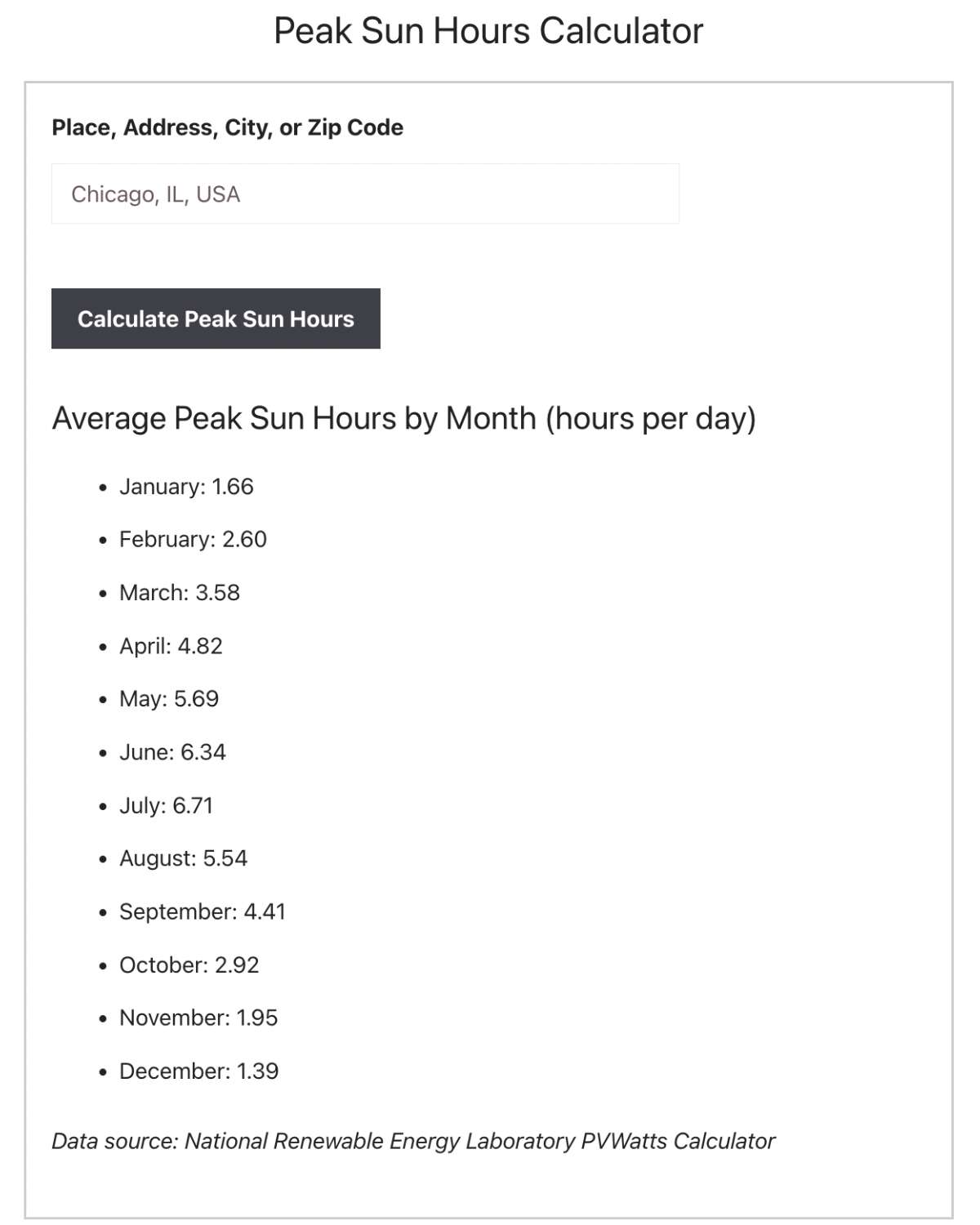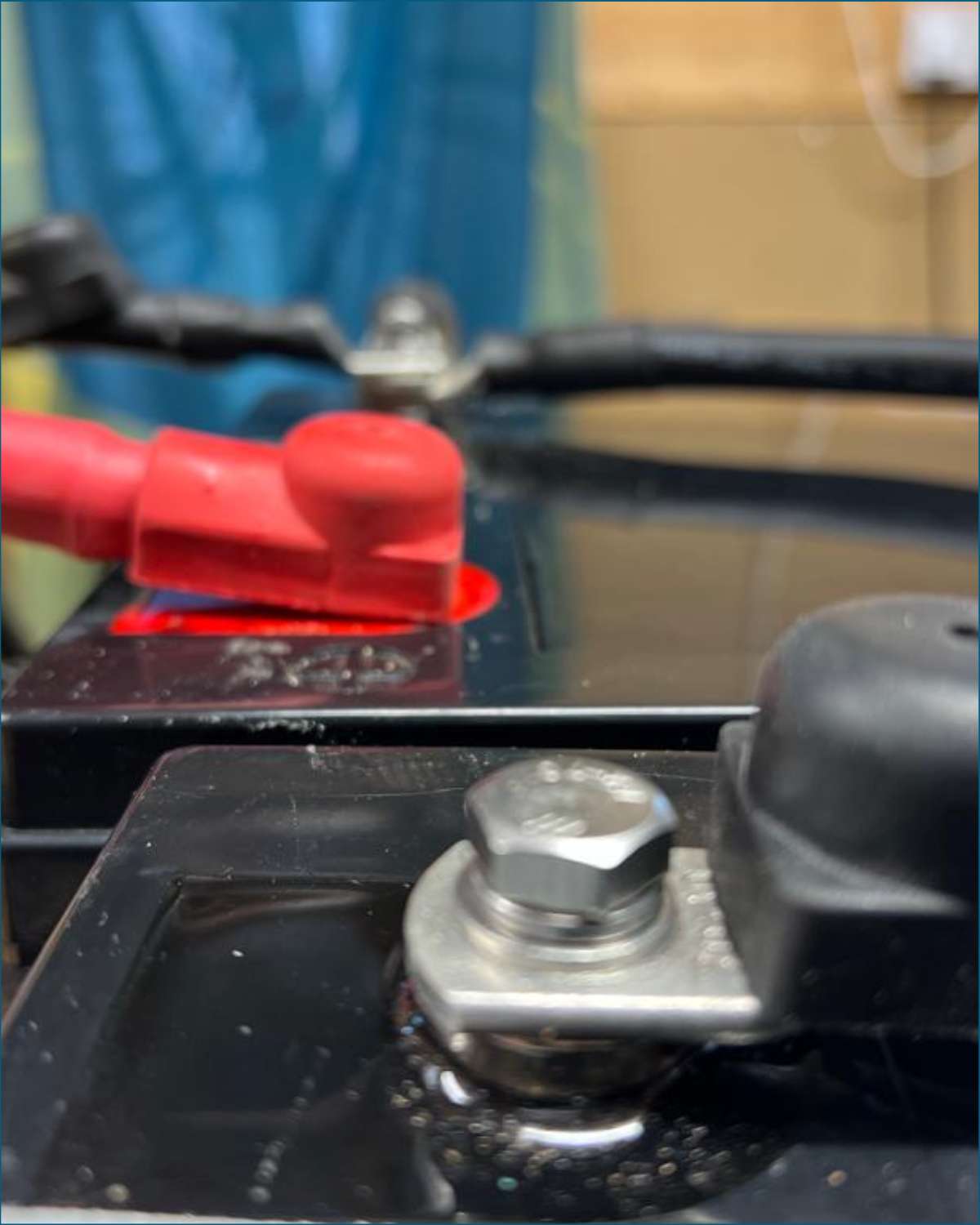Are you looking for the best solar panel kit for your RV camper? Check out this post to learn about the best brands and models and tips on what to look for while shopping. Get all the necessary information to equip your RV with a top-quality solar power setup.
Using solar panels to provide at least some of your camper’s electricity can make for a peaceful, off-grid experience.
Without the need to hook up, daily driving, or noisy portable generators, you can keep your leisure batteries charged without paying for campgrounds and enjoy some of nature’s best boondocking locations.
A few components are needed to install a solar setup, so you must shop around for the correct size parts and configure a suitable setup for your electrical demand.
Or you can make it easy and buy a solar panel kit that includes all the necessary parts.
With a pre-configured solar panel, adding solar panels to RVs, campervans, and motorhomes has never been easier.
But there are a few kits available, and this post will help you figure out which is best for you.
When you click on links to various merchants on this site and make a purchase, this can result in this site earning a commission. As Amazon Associates, we earn from qualifying purchases. For more info, please check our disclosure page.
At a Glance: Best Solar Panel Kits for RV Campers
 |
1. Renogy 200 Watt Solar Premium Kit
|
CHECK PRICE ► |
 |
2. Renogy 800W 12V/24V Monocrystalline Solar Premium Kit
|
CHECK PRICE ► |
 |
3. Jackery Solar Generator 1000 (Jackery 1000 + 2 x SolarSaga 100W)
|
CHECK PRICE ► |
 |
4. Renogy 100 Watt 12 Volt Solar Premium Kit
|
CHECK PRICE ► |
 |
5. Jackery Solar Generator 300 ( Jackery 300 + SolarSaga 100W)
|
CHECK PRICE ► |
 |
6. Renogy 100 Watt Solar Flexible Kit
|
CHECK PRICE ► |
 |
7. Renogy 100 Watt 12 Volt Solar Starter Kit
|
CHECK PRICE ► |
What is an RV Solar Panel Kit?
RV solar panel kits are like all-in-one packages that help you power your RV, motorhome, camper, or caravan using the sun’s energy.
These kits come with everything you need – solar panels, charge controllers, wires, and even mounting gear.
Some kits also include batteries and inverters.
So, instead of depending on campsite hookups or noisy generators, you can use solar power to run your lights, fans, fridge, and gadgets.
It’s a fantastic way to make your travels more eco-friendly and enjoy the freedom of going off-grid, all while doing something great for our planet!
The Best Brands
We recommend using well-known brands like Renogy or Jackery. There are less well-known brands available too, but they don’t all have the same track record.
There tends to be little price difference, so we think it’s worth opting for the more established brand.
A couple of other brands to look out for are:
- Goal Zero – their Nomad range consists of micro solar panel kits, ideal for hikers and campers with small energy demands.
- WindyNation – this US-based company manufacturers components for wind and solar power generation. Their solar panel kits are of good quality at affordable prices.
How Much Does a Solar Panel Kit Cost?
Kit prices vary based on wattage and included components.
Budget-friendly starter kits cost less than $200, like the Renogy 100w starter kit. You may need to add in the cost of a battery and possibly an inverter, too.
If these small kits provide you with everything you need in the long term, then they’re a great option.
But, if you expect to expand the system later, we recommend choosing the kits with the best solar panels (monocrystalline, rigid panels) and an MPPT controller.
An equivalent small kit that you can easily expand later, like the Renogy 100w premium kit, costs less than $300. It may seem like a significantly higher price, but it makes better financial sense in the long term.
If your energy demands are more significant, and you want to spend more time off-grid, the larger kits like the Renogy 800W premium kit cost a little over $1500.
For this, though, you’re getting plenty of solar energy and a top-of-the-range charge controller for the most efficient battery charging.
Why Choose a Solar Panel Kit?
The most significant advantage of buying a kit rather than individual components is convenience.
You can be confident everything included is sized as a complete configuration, so your only decision is what size to buy.
Kits usually include wiring instructions, too, making installation a little easier for novices.
How Much Electricity Do You Need?
Off-grid living means you can only use the electricity you can generate and store. If you use more than you can generate, your batteries will eventually flatten.
Solar panel kits and their components can be expensive, so it’s more frugal to buy a size only to accommodate your needs.
And if you buy a kit too small, it could be as wasteful as buying one too big.
Knowing how much electricity you need is the first step in sizing your complete setup. We have an RV solar calculator to help you size your system.
Even if you only plan to add a small solar capability, we encourage you to use the calculator to figure out your base usage.
It will also provide details of how much solar panel power, battery storage, and size charge controller you need.
It’s essential to buy a kit where all the components are at least as big as those calculated.
The Best RV Solar Panel Kits for Campers
1. Renogy 200 Watt Solar Premium Kit – The Best Solar Panel Kit For RV Campers
Specifications
- Wattage: 800 watts
- Power Source: Solar Powered
- Item Weight: 14.1 lbs
A 200-watt solar kit is ideal for a camper with modest energy demands.
Depending on the amount of sunlight, it’s enough to run a small fridge, keep your lights and roof vent running and charge small devices. You’ll probably have enough power to run an inverter occasionally.
The Renogy 200w premium kit is our top pick of all the solar panel kits on our list.
The kit includes 2 of Renogy’s monocrystalline panels for maximum efficiency. They’re lightweight, too, an essential factor for vehicle handling.
The panels’ corrosion-resistant aluminum frames mean these things will last for years.
Of course, as you’d expect for a premium kit, it also includes a 20A MPPT charge controller so your battery bank can make the most of those top-of-the-line solar panels.
You get everything you need to install the kit, including mounting brackets to fit the panels to the camper’s roof, fuses, cables, and connectors for the panels.
One of the significant benefits of choosing Renogy solar panels is their 25 years warranty.
The kit doesn’t include a battery or an inverter. For a 200w solar setup, we recommend at least a 100ah battery bank.
The kit includes installation instructions. See our 200w solar panel wiring diagram if you need assistance.
What We Like
- Enough energy to run a small fridge, keep your lights and vents running, and charge small electronic devices
- They’re lightweight, which is crucial for vehicle handling.
What We Don’t Like
- Batteries and inverters are not included in the kit
Pros
- High quality
- packed securely
- panels’ corrosion-resistant
- 25 years warranty
Cons
- Poor customer service
Specification
- Wattage:800 watts
- Input Voltage: 24 Volts
- Power Source: Solar Powered
People with larger motorhomes and RVs often have greater energy demands. Rather than allow that to confine you to campgrounds, a good size solar panel kit will allow you to enjoy boondocking and still keep the lights on.
Depending on the amount of sunlight, an 800w solar system could generate 240 – 256 amps per day with only 4 hours of peak sun.
That’s enough to power a TB, charge laptops and a coffee maker, and run a large, energy-efficient fridge.
An 800w system gives you a good few days in reserve, depending on your usage, and without other sources of recharging.
If you intend to live in a camper in the winter months, 800w is a complete luxury!
Like all Renogy’s premium kits, the 800w version includes their top-of-the-range monocrystalline solar panels, an MPPT solar charge controller, and all the fittings needed.
We don’t forget their standard warranty either.
The kit doesn’t include a battery or an inverter. For an 800w solar setup, we recommend at least a 300ah battery bank.
The kit includes installation instructions, but look at our 800w solar panel wiring diagram if you need assistance with that.
What We Like
- Can generate 240 – 256 amps per day with only 4 hours of peak sun.
- This kit comes with top-of-the-line monocrystalline solar panels, an MPPT solar charge controller, and all the necessary fittings.
- Easy to install
What We Don’t Like
- Batteries and inverters are not included in the kit
Pros
- Reliable Power Output
- Efficient Performance
- Industry-Leading Technology
- Built to Last
- Fast and Easy Installation
Cons
- Poor customer service
Specification
- Wattage:1000 watts
- Input Voltage: 110 Volts
- Power Source: Battery-powered, Solar powered
- Item Weight: 22.04lbs
Portable solar generators, combined with solar panels, are a terrific way of getting the benefits of solar power without having a permanent installation on your roof.
We’ve written an entire post on portable solar generators, so we won’t go into all the details here. Specifically, the Jackery Solar Generator 1000 Solar Panel Kit is a complete setup.
It has 2 x 100w folding solar panels and all other components, including the battery, integrated into the solar generators.
The main benefit of this setup is its portability. And you can recharge the generator from a mains supply if your camping trip turns into a wet weekend!
What We Like
- It’s a great option for people who want to prioritize portability and storability
- Features a pure sine wave inverter with an AC outlet, and can be charged using solar panels, a wall outlet, or a 12V carport.
What We Don’t Like
- You might not be able to use it for longer trips
Pros
- Portable
- Fast Solar Recharging
Cons
- Moderately noisy cooling fan
Specification
- Wattage: 100w
- Input Voltage: 24 Volts
- Power Source: Solar powered
- Item Weight: 26.7 pounds
If you’re on a tight budget or have a small camper, the Renogy 100 Watt 12 Volt Solar Premium Kit is perfect for your camper’s electrical system.
As you’d expect from Renogy’s premium kits, it also includes an MPPT charge controller and monocrystalline solar panels. The 20A controller means you can easily add another panel or two later.
A 100w solar system probably isn’t enough to keep you living in a van year-round without extra charging from either shore power or while you drive, but it’s a good start.
With a few hours of peak sun, you can probably generate and store enough power to recharge a couple of small devices, run your roof vent during the night to stop condensation, keep a composting toilet’s fan running 24/7 and switch on a few LED lights inside the campervan.
You get everything you need to install the kit, including mounting brackets to fit the panels to the camper’s roof, fuses, cables, and connectors for the panels.
The kit doesn’t include a battery or an inverter. For a 100w solar setup, we recommend at least a 50ah battery bank.
If you intended to extend the system later or want to top up from other sources, you’re probably better off buying a larger battery bank.
What We Like
- When the sun is at its peak, you can probably generate and store enough power to recharge a couple of small devices.
- The kit includes everything you need to install the panels, including mounting brackets for the roof, fuses, cables, and connectors for the panels.
What We Don’t Like
- The kit doesn’t come with a battery or an inverter.
Pros
- Good price
- Easy to install
- Lightweight
Cons
- Poor customer service
Specification
- Wattage: 300
- Input Voltage: 110 Volts
- Power Source: Battery-powered, Solar powered
- Item Weight: 7.1 lb
The Jackery Solar Generator 300 Kit is the only other complete setup on the list. There is no need to buy a separate battery and no need for complex electrical installations.
Simply plug the portable solar panel into the solar generator, and you’re good to go.
This small generator (or, more accurately, power station) is ideal for car campers and won’t take up much storage space.
What We Like
- When the sun is at its peak, you can probably generate and store enough power to recharge a couple of small devices.
- The setup is complete. No need to purchase a separate battery or install complex electrical wiring.
- Portable
What We Don’t Like
- N/A
Pros
- Clean & Quiet
- Convenient
- Safe
- Lower Cost
Cons
- N/A
Specification
- Wattage: 100 W
- Input Voltage: 55 VDC
- Power Source: Solar Powered
- Item Weight: 4 lbs
Full disclosure here: we’re not big fans of flexible solar panels. Their low profile makes them great for stealth camping on campervans, but in our experience, they’re just not that efficient.
They perform best if they have a slight gap below them to allow air to circulate. We had flexible panels (although they were a much cheaper brand than Renogy), and they lasted a year. We were far from impressed.
However, flexible panels are better than nothing if you have limited flat space on your roof. And by investing in a good brand like Renogy, you can probably avoid the problems we experienced.
The Renogy 100 Watt Solar Flexible Kit includes a PWM charge controller, decreasing its overall costs. But, we don’t recommend buying these kits if you intend to expand on them later.
You’ll be better off with one of the premium kits that include an MPPT charge controller.
What We Like
- A flexible panel is the best option if your roof has limited flat space
- Waterproof charge controller
What We Don’t Like
- We do not recommend buying these kits if you plan to expand on them in the future.
Pros
- Easy to install
- Multiple protection features for battery, controller, and solar panels
Cons
- Poor customer service
Specification
- Wattage: 100 w
- Input Voltage: 18.9 Volts
- Power Source: Solar Powered
- Item Weight: 19.84 pounds
While Renogy 100 Watt 12 Volt Solar Starter Kit includes a PWM charge controller instead of an MPPT controller, it’s still a worthy contender. It’s the most budget-friendly kit on the list.
If you’re just beginning to explore the advantages a solar system can provide in your camper, this kit might be just what you’re looking for.
For less than $200, you get everything you need, install it and charge your battery. It includes the compact 100w monocrystalline panel, so you’re not losing quality there.
Plus, if you want to expand later, you can always invest in a new MPPT charge controller at the same time. That way, you haven’t forked out loads of cash on a system you may not use.
What We Like
- The most affordable kit on the list
- Best for beginner
- Expandable
What We Don’t Like
- An MPPT controller is replaced by a PWM controller
Pros
- Safe
- Efficient
- Reliable
Cons
- Poor customer service
RV Solar Panel Kit Buying Guide
It’s important to consider what components are included in a kit before you buy it. Here, we’ll take a look at the features to look out for.
We have a lot of articles about DIY campervan solar systems and detailed posts about every component. We’ve linked to them throughout this post so if you want to delve into more detail, just click through.
What’s Included in an RV Solar Panel Kit?
Most solar panel kits include everything you need to generate renewable energy from the sun.
- A solar panel(s)
- Solar charge controller
- Mounts
- Fuse
- Cabling & MC4 connectors
Because many camper conversions already have a battery bank installed, more often than not, solar panel kits don’t include the battery.
If you want to use your solar set up to run any household AC appliances, for example, charging a laptop, you’ll also need an inverter. These are rarely included in solar panel kits.
We’ve included a recommended size of battery and inverter for each solar panel kit we’ve reviewed. But it’s important to size your inverter to meet your needs. You can read more about inverters here and use this inverter calculator to buy the correct size.
The portable solar panel kits on our list include a solar generator, like the Jackery Solar Generator 300 kit. Despite its name, the solar generator is, in effect, a battery bank incorporating the charge controller and inverter.
You can learn more about portable solar generators here.
Solar Panels
Not all solar panels are made equal.
Firstly, choose between flexible and rigid panels.
Flexible panels can be molded more easily to non-flat surfaces, making them a good option for boats and more rounded camper roofs. They’re much easier to install too. That said, in our experience, flexible panels aren’t nearly as robust or efficient as rigid panels.
Rigid panels provide a better permanent and long-term solution than flexible panels. Once fitted, they should be good for years.
Then there are three types of solar cells to choose from:
- Monocrystalline
- Polycrystalline
- Thin-film aka amorphous

Solar panels are rated based on standard test conditions and therefore benchmarked against each other. This means that a 100-watt solar panel is the same as another 100-watt solar panel in identical conditions.
So how does the technology make any difference?
Monocrystalline panels are the most efficient. They are more durable and not as sensitive to high temperatures as polycrystalline or thin-film panels. Though they’re the most efficient, they’re also the most expensive.
Polycrystalline solar panels aren’t as efficient as monocrystalline solar cells, but they’re still quite common. Polycrystalline panels are more budget-friendly, but they tend to have a shorter lifespan.
Thin-film is a type of solar cell where the photovoltaic material is printed onto the panel. The panel doesn’t need to be a rigid surface. Instead, they can be applied to fabric or plastic, so quite flexible. They have a shorter lifespan than the other types of solar cells, though, and a lower efficiency rating. This means they need to be physically larger to produce the same energy as polycrystalline or monocrystalline panels.
Because roof and storage space is limited in campers, we only recommend monocrystalline solar panels.
They allow you to capture as much energy as possible for their footprint, which we think is more beneficial than saving a bit of money.
If you’re on a budget, start with a small but expandable kit so you can add more panels later.
Solar Charge Controller

There are two types of solar charge controllers: PWM charge controllers and MPPT charge controllers. If you want to deep dive into their detail, check out our article explaining everything you need to know about solar charge controllers.
To summarise, though, a PWM controller is less efficient than an MPPT controller. A 100w panel paired with an MPPT solar charge controller could provide 30% more power than paired with a PWM controller.
A PWM controller costs less than an MPPT solar charge controller, though, and by a fair margin. For example, a PWM controller capable of handing a 200w panel costs around $70 compared to an equivalent MPPT controller costing around $160.
If you depend on efficiently charging your battery bank, we recommend a kit with an MPPT controller, like any of Renogy’s premium kits.
RV Solar Panel Tips
- We recommend getting the best bang for your buck by buying the most efficient components. This means choosing an MPPT controller and monocrystalline solar panels.
- If your kit includes multiple panels, consider whether it’s best to wire them in series or parallel. In our experience, we get more energy from a series configuration, but you can use our calculator to see what would best suit your setup.
- Some RV solar panel kits don’t include the battery or inverter. Make sure to budget for your batteries and any inverter you may need.
If you don’t want the hassle of fitting panels on your roof or don’t have the roof space available, portable solar panels provide an ideal solution.
Have you already joined the world of solar-powered RV-ing? Share your experiences and advice in the comments today for a chance to help others make their RV journey even better.
Graham Bogie

Graham is a seasoned marine electrical engineer with two decades of experience designing customized electrical systems for plant machinery and converting campers and overland vehicles. His expertise has led him to author the reputable Campervan Electrics Handbook and become the chief designer of the RV Wiring Design Tool. As a knowledgeable figure in the field, his YouTube channel, blog, Facebook group, and newsletter, offering electrical advice and product reviews, reach more than a million users each year.



